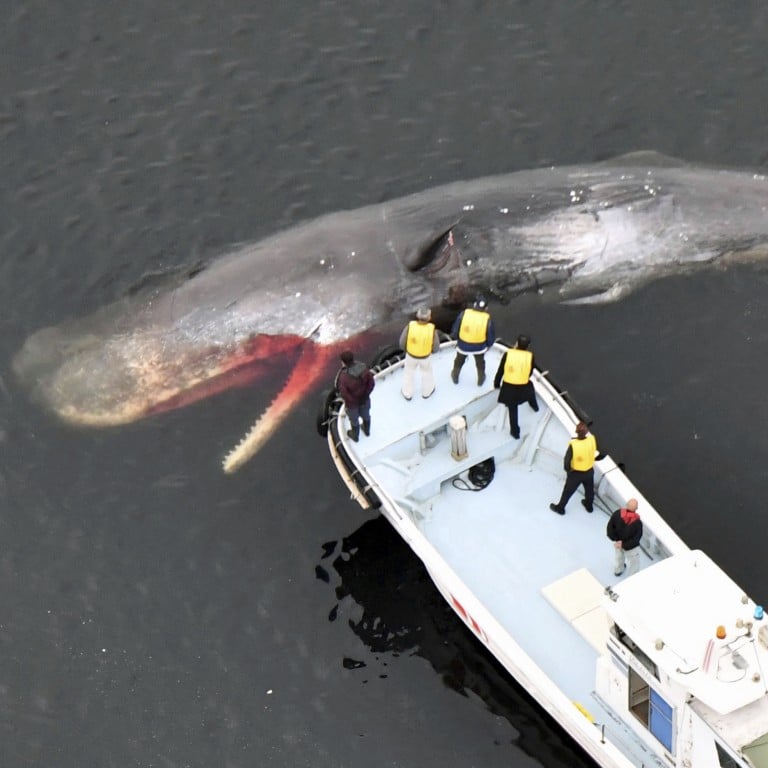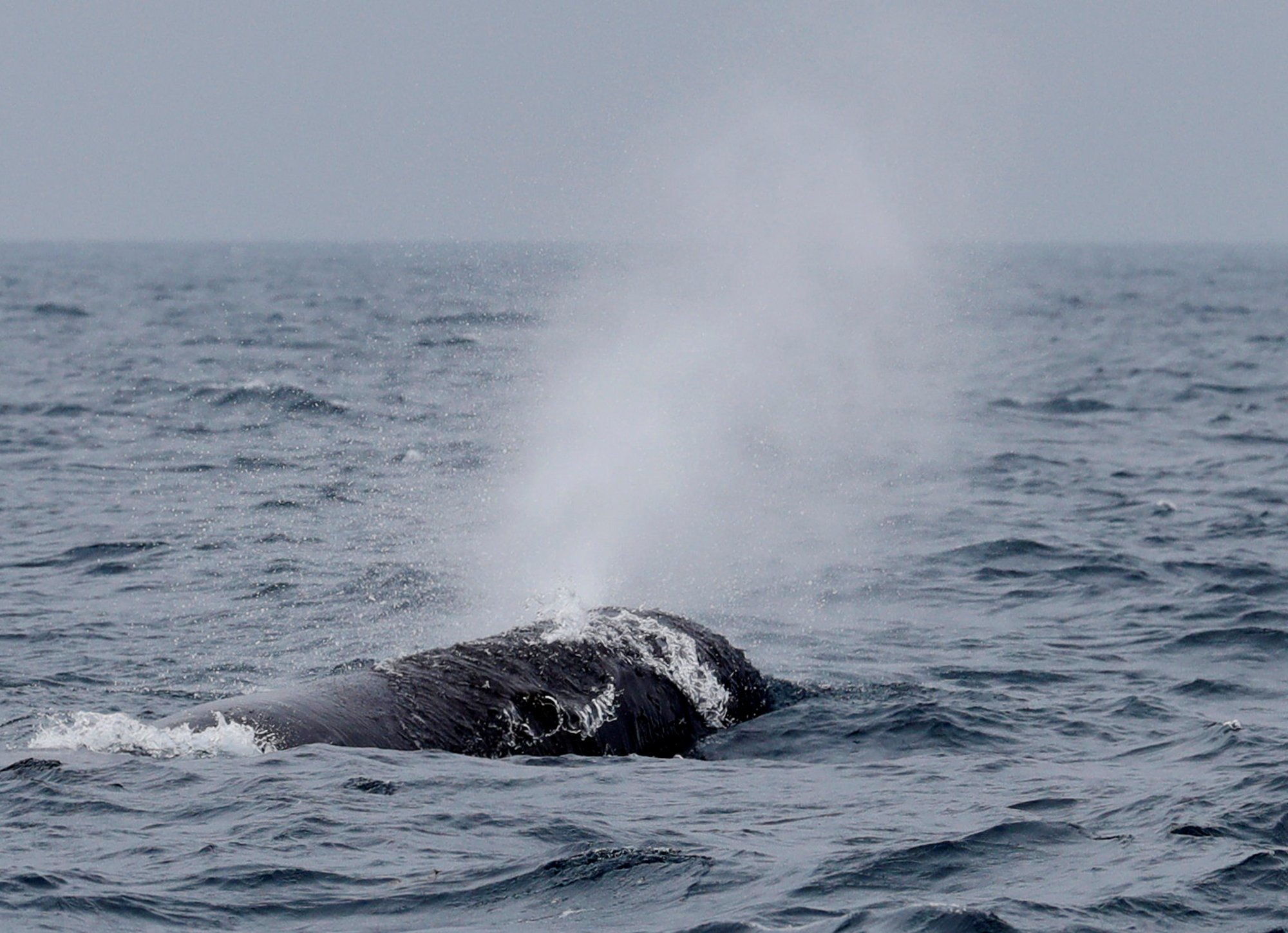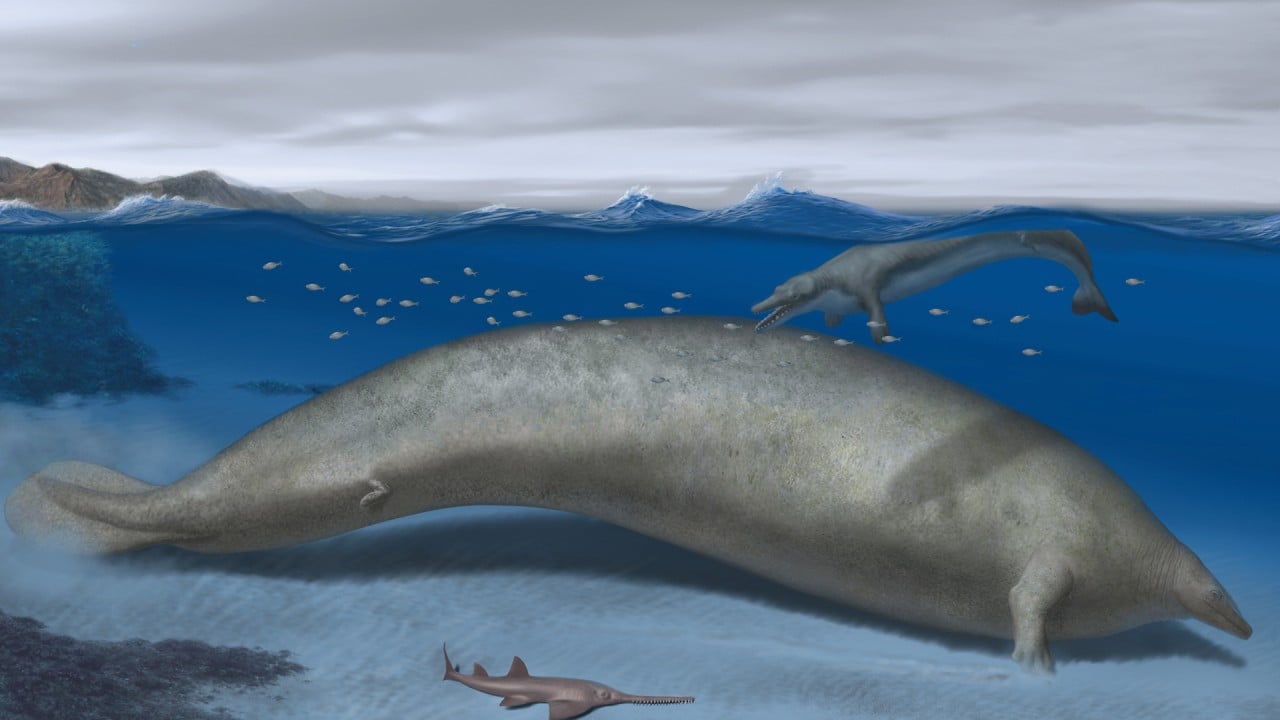
Whale deaths in Japan’s Osaka Bay spark concern about cause and frequency: ‘internal Google maps are messed up’
- Marine biologists are trying to determine why sperm whales have strayed into the shallow and congested waters of Osaka Bay, with three having died in consecutive years
- Experts say global warming could have played a role in attracting marine life to new areas, disrupting their internal navigation abilities and causing them to starve and die
Marine biologists are trying to determine why whales are swimming into the enclave of Osaka Bay, where they are becoming disoriented and stressed before apparently starving to death.
The whale was the third to die in the area in consecutive years, with experts concerned that such deaths may become more frequent.

Researchers suggest a combination of factors may have contributed to the death of the 14-metre whale, which weighed more than 25 tons.
“The warm Kuroshio Current that flows outside Osaka Bay and along the east coast of Japan is extremely strong, and it may well be that this individual entered the bay by mistake instead of continuing to the north,” said Mari Kobayashi, head of the marine biology laboratory at the Hokkaido-Okhotsk campus of Tokyo University of Agriculture.
“The bay is very shallow and this species of whale uses sound waves to navigate, but the narrow area of the bay would have made navigating very difficult and left it disoriented,” she told This Week in Asia.
The area immediately off Osaka is a maze of narrow channels constructed between man-made islands, with the whale’s carcass located in a channel that ended in a port facility.
“As well as being confused, the bay does not have enough food to sustain a whale, and it is likely this one starved,” Kobayashi added.
‘Non-starter’: will Japan ‘walk away’ from Indo-Pacific trade pact over whaling?
Kevin Short, a naturalist and former professor of cultural anthropology at Tokyo University of Information Sciences, suggested that global warming was affecting deep sea currents and raising the temperature of water within Osaka Bay, which might be attracting marine life that might not have previously ventured into the area, including whales, dolphins and turtles.
“Quite soon they starve, or possibly they are ill,” Short added.
Pollution in the bay did not appear to have been a contributing factor, Short said, although prefectural officials had been carrying out tests on the carcass after it was retrieved from the water to determine the cause of death.
The whale was buried at an industrial waste disposal site and will be exhumed in about two years to be preserved and used as a skeletal specimen in a museum in the city.
Kobayashi says there appears to be little that can be done to prevent whales from entering Osaka Bay in the future, with experts reporting hundreds of similar beachings or strandings of whales or dolphins around the country every year.
Short adds, however, that the whale’s death is not a serious environmental concern as the sperm whale population has rebounded in recent years after being close to extinction. Japan stopped hunting sperm whales in 1988.


